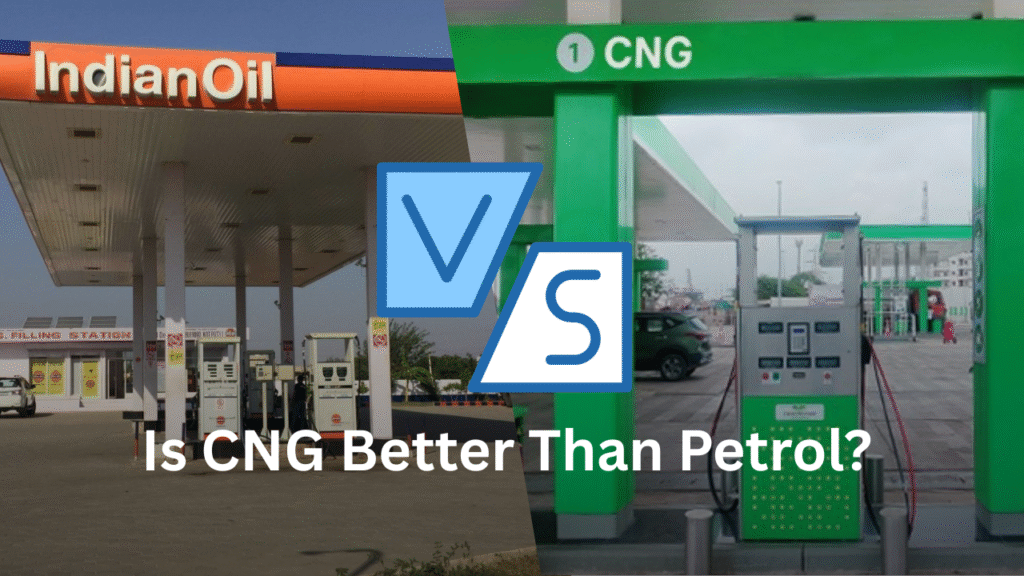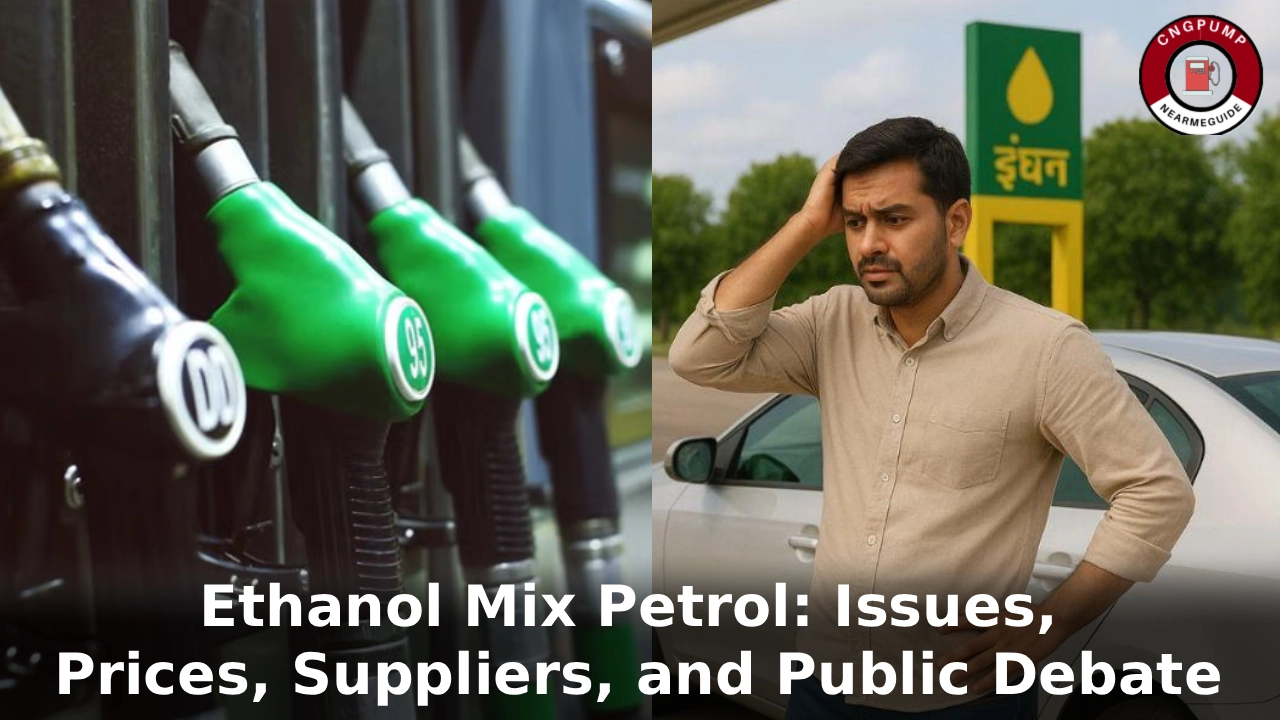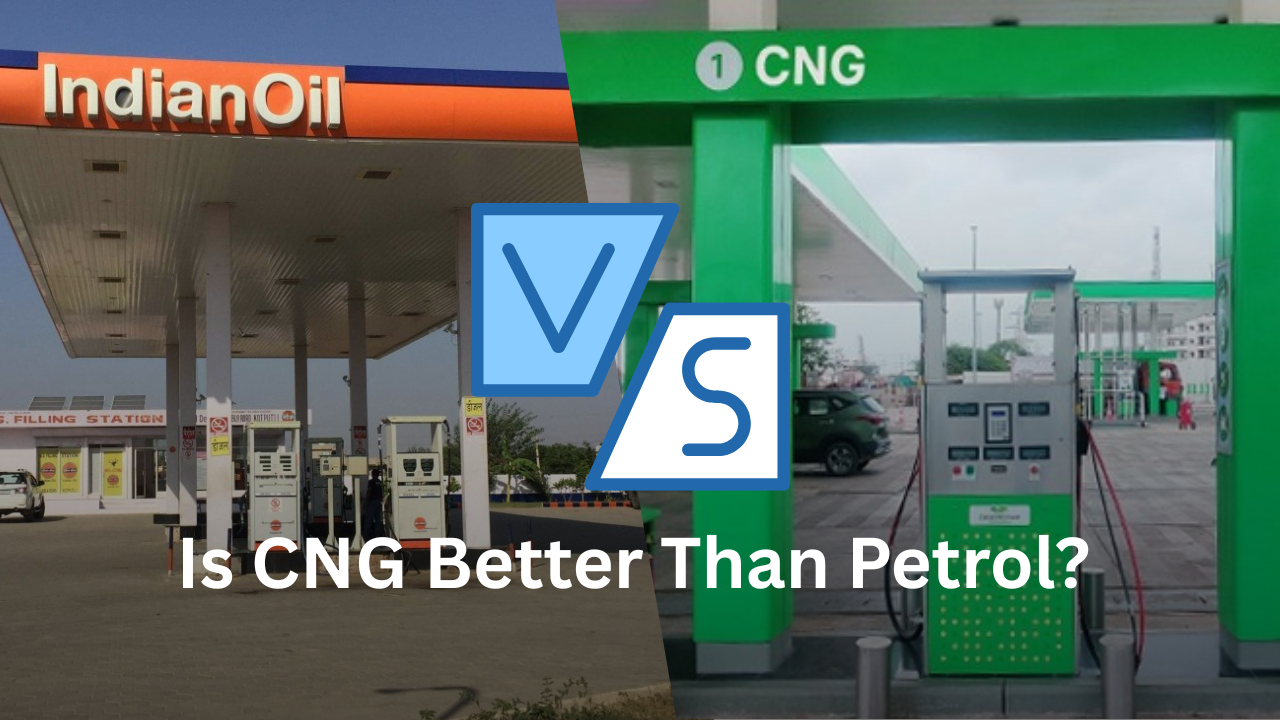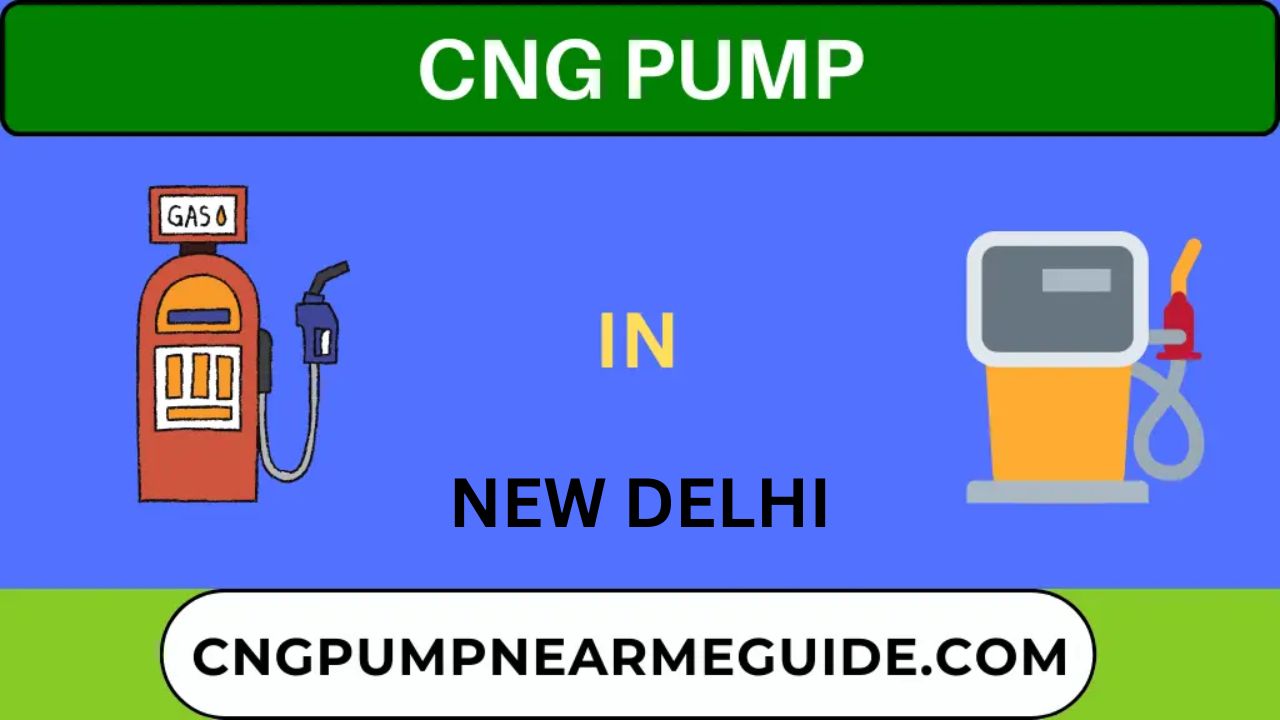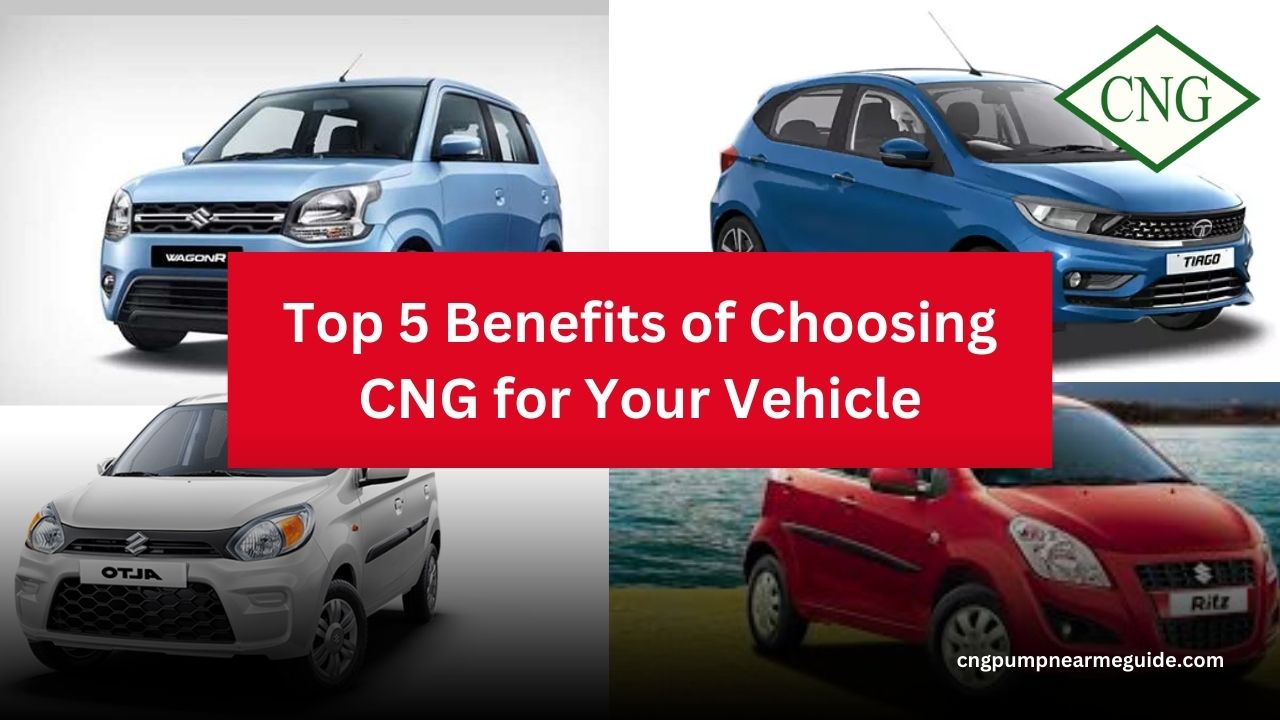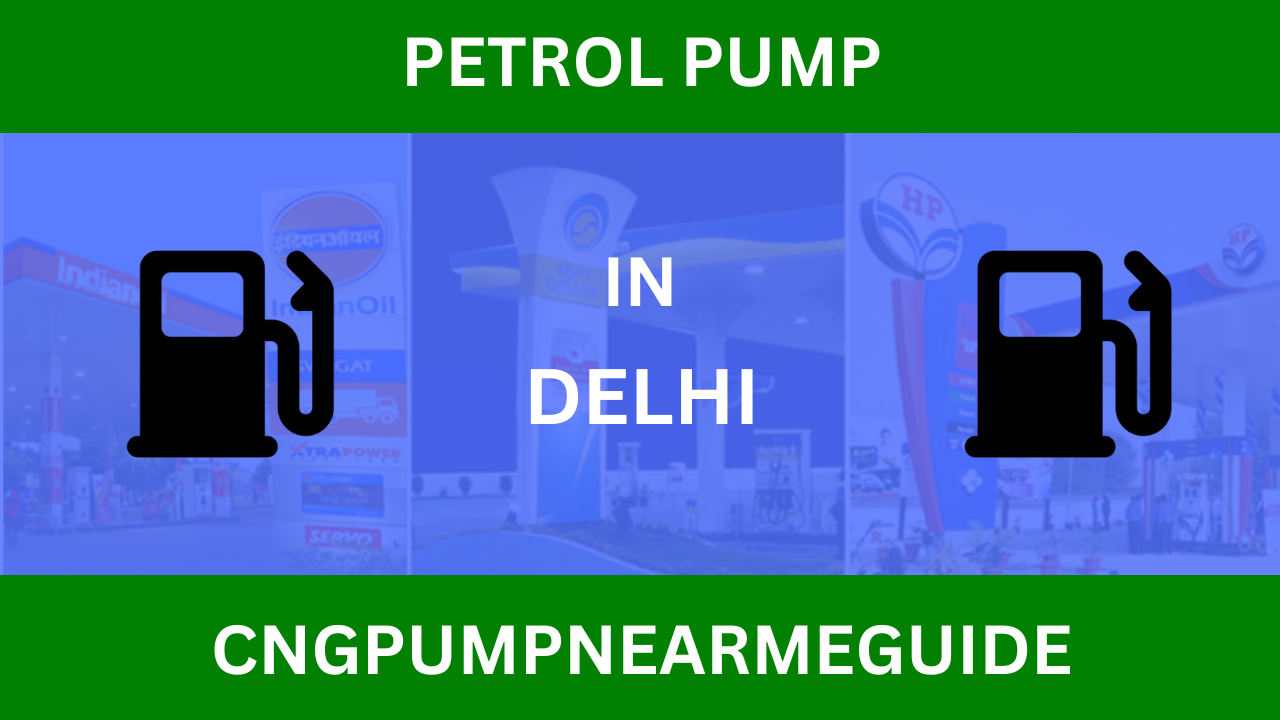With rising fuel prices, growing environmental concerns, and increasing demand for sustainable transportation, many vehicle owners are asking the same question: Is CNG better than petrol?
In this comprehensive guide, we will break down the differences between CNG (Compressed Natural Gas) and petrol (gasoline) based on cost, performance, environment, and long-term usability. We’ll also include real-world experience, expert-backed insights, and answers to common FAQs to help you make an informed choice.
Contents
- 1 1. What is CNG?
- 2 2. What is Petrol?
- 3 3. Conventional Comparison: CNG vs Petrol
- 4 4. Pros and Cons of CNG
- 5 5. Pros and Cons of Petrol
- 6 6. Is CNG Better Than Petrol? (Category-Wise Breakdown)
- 7 7. My Personal Experience Using Both CNG and Petrol
- 8 8. Real-World Use Cases
- 9 9. FAQs About CNG vs Petrol
- 10 10. Final Verdict: Is CNG Better Than Petrol?
- 11 ✍️ Final Words
1. What is CNG?
Compressed Natural Gas (CNG) is a fossil fuel alternative made primarily of methane. It is stored at high pressure and used as a clean fuel in specially designed or converted vehicles.
Key Features:
- Environmentally friendly
- Less expensive than petrol or diesel
- Requires a CNG-compatible or dual-fuel engine
2. What is Petrol?
Petrol (Gasoline) is a liquid hydrocarbon fuel derived from crude oil. It’s been the dominant vehicle fuel for decades and powers most cars by default.
Key Features:
- Widely available
- Higher energy content than CNG
- Works in standard internal combustion engines
3. Conventional Comparison: CNG vs Petrol
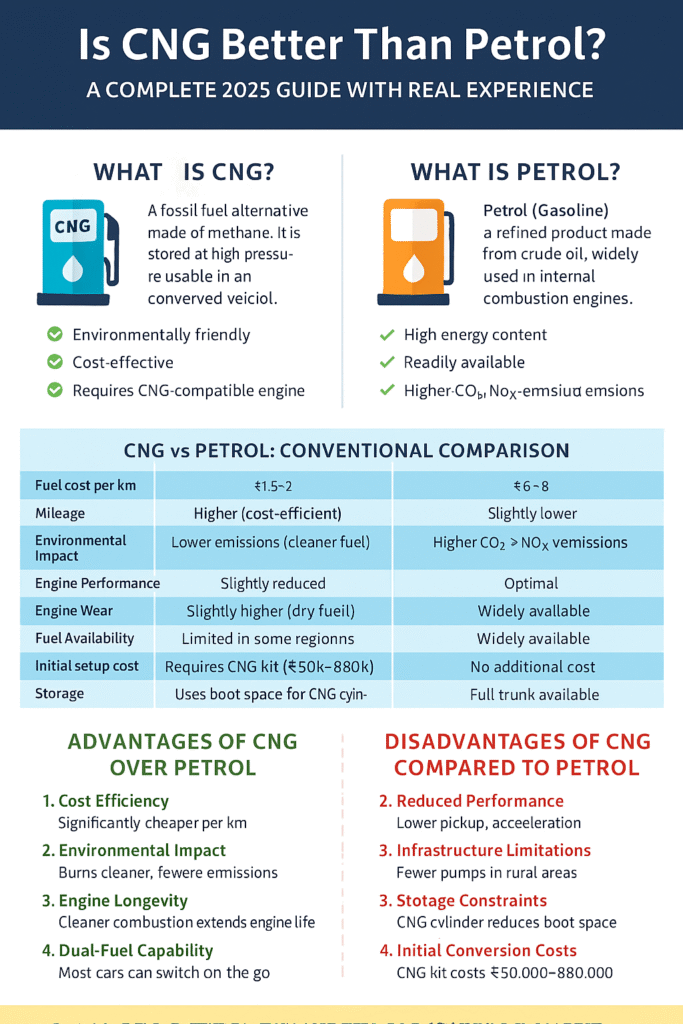
Here’s a side-by-side breakdown of the two fuels based on key factors:
| Feature | CNG | Petrol |
|---|---|---|
| Fuel cost per km | Cheaper | Expensive |
| Mileage | Higher (in terms of cost efficiency) | Slightly lower |
| Pollution | Cleaner emissions | More CO2 and NOx |
| Engine wear | Slightly more | Less |
| Availability | Limited in some regions | Widely available |
| Initial cost | Needs CNG kit | No extra cost |
| Safety | High-pressure tanks (safe if certified) | Flammable but manageable |
4. Pros and Cons of CNG
✅ Pros:
- Cost-effective: CNG costs 40–60% less than petrol per km.
- Environmentally friendly: Produces lower CO2, NOx, and PM emissions.
- Long-term savings: Especially for high-mileage users (taxis, delivery, daily commuters).
- Cleaner combustion: Less carbon buildup in engine.
❌ Cons:
- Power loss: Slightly lower engine performance.
- Limited infrastructure: Not every city has enough CNG stations.
- Initial cost: CNG kit installation can cost ₹50,000–₹80,000.
- Storage: Reduces boot space due to CNG cylinder.
5. Pros and Cons of Petrol
✅ Pros:
- High energy output: Better pickup and engine performance.
- Availability: Almost every fuel station offers petrol.
- Easy maintenance: No special engine components needed.
- No space usage: No cylinder, more boot space.
❌ Cons:
- Expensive fuel: Petrol prices continue to rise.
- Higher emissions: Contributes more to urban pollution.
- Lower mileage (cost-wise): More costly per km compared to CNG.
6. Is CNG Better Than Petrol? (Category-Wise Breakdown)
Let’s dig deeper into specific comparisons:
🔧 6.1. Fuel Economy
- CNG gives about ₹1.5–2 per km
- Petrol costs ₹6–8 per km
✅ Winner: CNG
🌍 6.2. Environmental Impact
CNG emits 20–30% less CO₂ and 90% less NOx. It’s a greener alternative to petrol.
✅ Winner: CNG
🚗 6.3. Performance
Petrol vehicles offer better torque and pickup. CNG cars may feel underpowered, especially when climbing or overtaking.
✅ Winner: Petrol
🛠️ 6.4. Maintenance & Engine Life
Petrol engines face less wear and tear. CNG is dry and can lead to valve damage over long periods without proper care.
✅ Winner: Petrol (but only slightly)
🗺️ 6.5. Availability & Convenience
Petrol wins hands down with universal availability, while CNG users often need to plan routes around CNG stations.
✅ Winner: Petrol
7. My Personal Experience Using Both CNG and Petrol
I drive a Maruti Suzuki Wagon R Duo — a dual-fuel vehicle with both CNG and petrol.
Here’s what I’ve learned:
- Daily city commute (20–30 km): CNG is perfect. I save over ₹4,000 monthly on fuel.
- Long highway trips: I switch to petrol for better power and flexibility.
- Maintenance tips: I get my valves checked every 10,000 km and always use a certified CNG kit.
- Boot space: Yes, the cylinder takes up space, but I adjusted with roof storage on long trips.
Bottom Line: If your usage is high and mostly in the city — CNG is a smart choice. For lower mileage or if you love driving, petrol wins.
8. Real-World Use Cases
✅ Who Should Choose CNG?
- City-based cab drivers (Uber/Ola)
- Delivery fleets
- Daily office commuters
- Cost-conscious car owners
❌ Who Should Avoid CNG?
- Performance enthusiasts
- People in areas with no CNG station
- Long-distance highway drivers
- Vehicles with heavy luggage needs
9. FAQs About CNG vs Petrol
Q1. Is it safe to install a CNG kit in a petrol car?
Yes, if installed from an authorized center. Choose RTO-approved kits only.
Q2. Can I switch between CNG and petrol?
Yes. Dual-fuel vehicles allow easy switching with the press of a button.
Q3. Does CNG reduce engine life?
Not if maintained properly. Use valve savers, and follow service intervals.
Q4. Is it worth converting my petrol car to CNG?
If your monthly running is over 1,000–1,500 km, the CNG conversion pays off within 1–2 years.
Q5. How much does it cost to install a CNG kit?
Anywhere from ₹50,000 to ₹80,000, including RTO approvals and tuning.
10. Final Verdict: Is CNG Better Than Petrol?
The answer depends on your driving habits, location, and priorities.
| Situation | Recommended Fuel |
|---|---|
| Daily city commute | ✅ CNG |
| Long highway drives | ✅ Petrol |
| Limited CNG stations | ✅ Petrol |
| High monthly mileage | ✅ CNG |
| Performance-focused driving | ✅ Petrol |
| Cost savings priority | ✅ CNG |
✔️ Our Take:
CNG is better than petrol for cost savings and environmental impact, especially for urban users with access to CNG stations.
However, petrol still offers more power and flexibility, making it suitable for diverse driving conditions.
✍️ Final Words
Both fuels have their strengths. With rising fuel prices and stricter emission norms, CNG adoption is bound to grow — but only where infrastructure supports it. Before making the switch, evaluate your needs, budget, and travel habits.
Have questions or want a comparison for your specific car? Drop them in the comments — I’d love to help!
